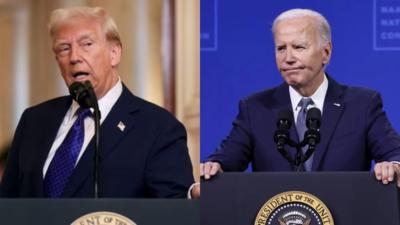In a significant policy reversal, numerous US colleges are reinstating campus sexual assault regulations originally implemented during the Trump administrationŌĆÖs first term. This shift comes amid ongoing debates over the balance between protecting survivorsŌĆÖ rights and ensuring fair due process for the accused. The move signals a renewed emphasis on stringent procedural standards and reflects the evolving landscape of campus sexual misconduct policies nationwide.
US Colleges Reinstating Trump Era Sexual Assault Policies Spur Debate
Several universities across the United States have moved to reinstate the campus sexual assault guidelines originally implemented under the Trump administration, igniting intense discussions among students, faculty, and legal experts. These policies emphasize stricter due process protections for the accused, including the right to cross-examine alleged victims through advisors and heightened evidentiary standards. Advocates argue this framework restores fairness and protects students from wrongful accusations, while critics warn it may discourage survivors from coming forward and weaken support systems for victims.
The debate underscores a broader tension in higher education over balancing the rights of accused individuals with the need to maintain a safe campus environment. Institutions adopting these rules have cited federal pressure to comply with 2018 Department of Education regulations, noting key components such as:
- Live hearing requirements to ensure transparency and accountability
- Equal access for both parties to present evidence and witnesses
- Clear definitions of consent and sexual misconduct
Below is a quick comparison of core policy elements before, during, and after the Trump-era regulations:
| Policy Element | Pre-2018 | Trump-Era (2018) | Post-2021 Changes |
|---|---|---|---|
| Live Hearings | Optional | Mandatory | Some institutions maintaining |
| Cross-Examination | Rarely permitted | Required via advisors | Varies by university |
| Definition of Consent | Less specific | More precise, based on affirmative consent | In flux, debated |
Impact on Survivor Support and Due Process Protections
Reinstating the Trump-era campus sexual assault regulations marks a significant shift in how institutions handle allegations, emphasizing a re-balancing act between survivor advocacy and accused individuals’ rights. Under these guidelines, schools are required to provide clear timelines for investigations and impose stricter evidentiary standards, aiming to ensure fairness in disciplinary proceedings. Critics argue that while survivors may face additional hurdles, these measures also safeguard due process by preventing rushed judgments and promoting transparency.
The impact on campus communities can be illustrated by the following contrasts in policy features:
| Aspect | Trump-Era Rule | Previous Biden Administration Rule |
|---|---|---|
| Investigation Timeline | Defined limits (90-150 days) | Flexible, case-by-case |
| Evidence Standard | ŌĆ£Clear and convincingŌĆØ | ŌĆ£Preponderance of evidenceŌĆØ |
| Support Services | Emphasis on both partiesŌĆÖ rights | Primarily survivor-centered |
- Survivors may encounter more procedural safeguards but face stricter proof requirements.
- Accused students gain stronger protections against premature sanctions.
- Universities must enhance transparency while ensuring support services remain accessible.
Legal Challenges and Federal Guidance Shape Campus Protocols
Federal courts have played a pivotal role in shaping the landscape of campus sexual assault policies by issuing rulings that challenge the Biden administrationŌĆÖs efforts to overhaul guidelines issued during the Trump era. These legal decisions have forced many universities to reconsider their procedures and sometimes revert to protocols emphasizing due process protections for the accused. Institutions now find themselves navigating a complex legal environment marked by a push-and-pull between protecting survivors’ rights and ensuring fair treatment for all parties involved.
In response to this dynamic environment, the Department of Education under the current administration has yet to finalize its updated Title IX rules, leaving colleges to contend with interim guidance and conflicting court mandates. Some key features of the Trump-era policies that colleges are reinstating include:
- Live hearings with cross-examination rights for both parties
- Clear standards of evidence such as the “preponderance of evidence” standard
- Greater procedural safeguards aimed at ensuring impartial adjudication
| Policy Aspect | Trump-Era Rule | BidenŌĆÖs Proposed Changes |
|---|---|---|
| Standard of Evidence | Preponderance of evidence | Flexible, case-by-case basis |
| Cross-Examination | Permitted during live hearings | Discouraged or limited |
| Burden of Proof | On the institution to prove | Potentially higher scrutiny |
Recommendations for Balancing Safety and Fairness in Campus Investigations
Institutions must implement clear policies that uphold both the rights of the accused and the safety of survivors while ensuring impartiality throughout the investigative process. Transparency in procedures and decision-making fosters trust campus-wide, reducing misconceptions about bias. Providing comprehensive training for adjudicators and investigators on trauma-informed practices and legal standards is essential to neutralize potential prejudices. Support services should remain accessible to all parties without influencing outcomes, maintaining a balance between empathy and fairness.
Adopting standardized timelines and procedural safeguards can help maintain consistency and accountability. The following table outlines key elements suggested for a balanced investigative framework:
| Element | Purpose | Implementation |
|---|---|---|
| Neutral Investigators | Ensure unbiased fact-finding | Independent training and oversight |
| Confidentiality Protocols | Protect privacy of all parties | Strict information handling rules |
| Timely Resolution | Prevent prolonged distress | Defined procedural deadlines |
| Equal Access to Support | Assist both survivors and respondents | On-campus counseling and resources |
Concluding Remarks
As colleges across the United States readopt sexual assault policies established during the Trump administration, the debate over how best to balance victimsŌĆÖ rights with due process protections continues to shape campus conversations and legal battles. Observers note that these shifts reflect broader tensions in federal guidance and highlight the ongoing challenges institutions face in addressing sexual misconduct while adhering to evolving regulatory frameworks. The coming months will be critical in determining how these rules impact both survivors and the college communities tasked with enforcing them.









